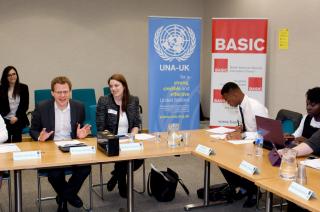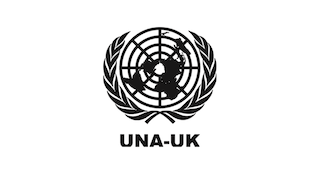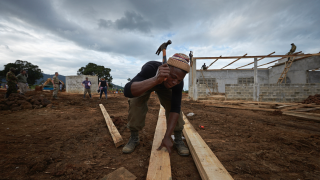Young people are keenly aware of the ‘global world’ in which we live. A clever idea could go viral and attract support from around the world in minutes but climate change, pandemics and extremism cross borders just as easily. From job creation to LGBTQ+ rights, the things that young people care about have a global dimension.
Resources
To support learning about global issues, UNA-UK has worked with teachers and global education specialists to produce a number of free teaching resources that add value to the curriculum, developing core skills and knowledge as well as broader learning and developmental objectives.
- International Days - bring global issues to life: online teaching resource based on ‘UN International Days’, with 29 factsheets and activities for primary and secondary students covering global issues such as: human rights, press freedom, science, child labour, racism, health, refugees, water, conflict and the environment.
-
The United Nations Matters: four lessons, with worksheets and activities, to introduce secondary students to the UN and how it works to build peace, fight poverty and protect human rights, and a fifth lesson featuring a classroom simulation of a UN conference. Available online and in hard copy.
-
Learning about human rights: five lessons, with worksheets and slide presentations, on the Universal Declaration of Human Rights, the UN Convention on the Rights of the Child, and how child rights are affected by conflict, climate change and poverty. Available to download.
-
Model UN portal: a host of online resources for primary and secondary school teachers who want to organise or support a ‘Model UN’ - simulations of UN meetings. Includes: template schedules, issue briefings, country profiles, preparation tips, a glossary and much more. Suitable for first-timers.
Each resource features introductory materials for teachers, including curriculum links for England, Northern Ireland, Scotland and Wales.
Network
Our informal network of teachers is a good opportunity to get more involved with our work. Members are asked to exchange ideas, input into resources and champion our activities.
Voice
As a grassroots movement of over 15,000 people we frequently speak out on UN issues. Our recent successes include a campaign to keep teaching about the UN in the new curriculum for England and Wales.






